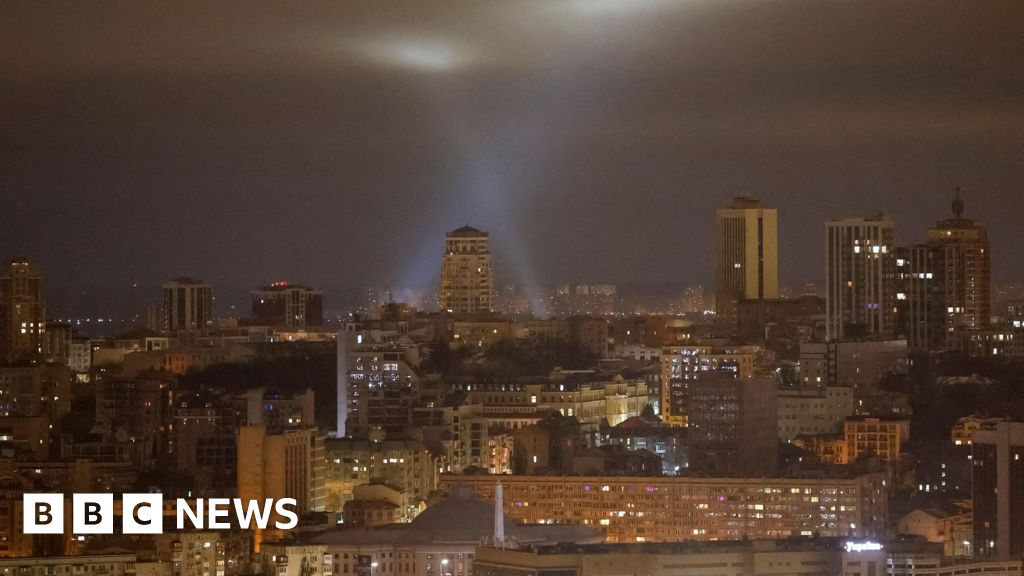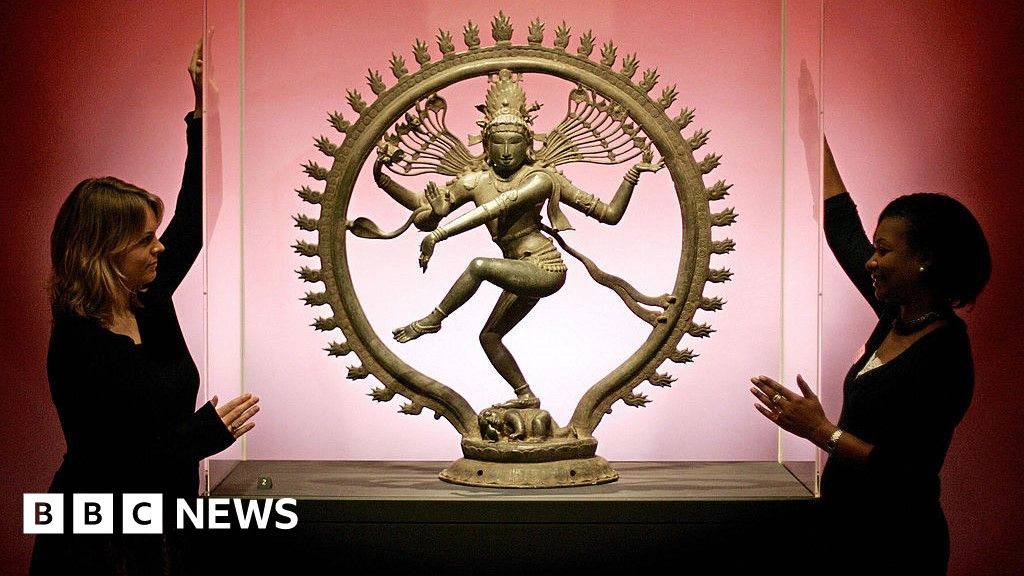ARTICLE AD BOX
US President Joe Biden has said there is a "possibility of working towards a ceasefire" in Lebanon, where Israel is fighting the armed group Hezbollah, but added that "it's going to be harder in Gaza" despite the death of Hamas leader Yahya Sinwar earlier this week.
He was speaking as he left Berlin, where he met the German, French and British leaders.
Sinwar's death had raised hopes in some quarters of an end to the war in Gaza.
But on Friday the deputy leader of Hamas, Khalil al-Hayya, insisted it would only strengthen the group. He said Israeli hostages would not be returned until Israel ended the war and withdrew from Gaza.
Meanwhile Israel escalated its assault on the Jabalia refugee camp, a densely-populated urban area north of Gaza City which Israeli forces have besieged for two weeks, sending another army unit to support troops already operating there.
Sinwar was responsible for the deadly Hamas attack on Israeli communities near Gaza on 7 October last year, which killed about 1,200 people and saw 251 others taken to Gaza as hostages.
Israel's subsequent military campaign in Gaza has killed at least 42,500 people, the Hamas run health ministry there says.
The Israeli military said earlier that Sinwar was killed when the building he was hiding in in the southern Gaza city of Rafah was struck with "tank fire". It also noted its troops traded gunfire with a group of "terrorists" before the building was targeted.
On Friday the pathologist in Israel who conducted his autopsy told US media the cause of death had been a "severe traumatic brain injury" from being shot in the head.
Dr Chen Kugel, from the National Center of Forensic Medicine in Tel Aviv, says he found wounds "from other sources" on the former Hamas leader - including injuries to his right forearm from "missile fire", a damaged left leg from "fallen masonry" and shrapnel injuries to his body.
"They caused the severe damage, but the cause of death is the gunshot wound in the head," he told CNN.
Late on Friday Reuters quoted Palestinian medics as saying at least 30 people were killed and many more wounded in Israeli strikes on Jabalia that hit several houses.
The Palestinian official news agency Wafa said at least 20 women and children were among those killed. There was no immediate Israeli comment.
Before the latest strikes the Hamas-run health ministry in Gaza said at least 39 Palestinians, many in Jabalia, had been killed by Israeli strikes across Gaza on Friday.
Residents told Reuters that Israeli tanks had reached the heart of Jabalia under cover of heavy air strikes and artillery fire, and said Israeli troops were destroying large numbers of homes every day.
Later on Friday residents reported that communications had been cut in Jabalia and two other towns in northern Gaza.
On Friday the head of the UN's Office for Humanitarian Assistance (OCHA), Georgios Petropoulos told the BBC's Newshour programme that families in Jabalia were enduring "atrocious conditions".
"We can't hit the alarm bell hard enough about how dire and dangerous the situation for civilians there is," he said, speaking from Rafah in southern Gaza.
"Families that are in north Gaza, especially the ones that are in Jabalia camp surrounded by Israeli forces, are trying to survive in what can only be described as atrocious conditions under a very heavy bombardment."
On Thursday the Israeli military said it had killed numerous fighters in close-quarters combat and dismantled military infrastructure.
Mr Petropoulos added he did not foresee getting aid into the north of Gaza becoming easier as a result of Sinwar's death.
Very little aid has entered northern Gaza in October. Israel said it sent in about 30 lorries of supplies into northern Gaza on Friday including food, water, medical supplies and shelter equipment. But local health officials told Reuters that aid has not been reaching the worst-affected areas such as Jabalia.
"We don't see a path to peace from where we are in Gaza," he said. "I still see children dying on the floors of hospitals for the lack of hospital beds... and dialysis patients dying because there is no fuel allowed to get to hospitals."
Israel has repeatedly denied it is preventing aid from entering Gaza. But the US has told Israel to boost humanitarian aid access in Gaza or risk having some US military assistance cut off.
On Friday an Israeli minister told the BBC that Israel had "blockaded" parts of northern Gaza, which include Jabalia.
Amichai Chikli told the BBC's Newshour programme: "We've created a blockade with our forces. We allowed the civilian population to escape into the safe zone, and we prevented supplies to enter the blockade region, which was a very specific region where Hamas was trying to recover its administration and its military capabilities."
He insisted this was "legal according to the international law".
Fighting also continued in Lebanon, where the IDF has launched a ground invasion against Hezbollah.
On Friday, the Israeli military said it had killed about 60 Hezbollah fighters and destroyed the Iran-backed group's regional command centre with an air strike.
Hezbollah meanwhile said it fired rockets at the Israeli city of Haifa and areas to its north.

 3 months ago
14
3 months ago
14








 English (US) ·
English (US) ·